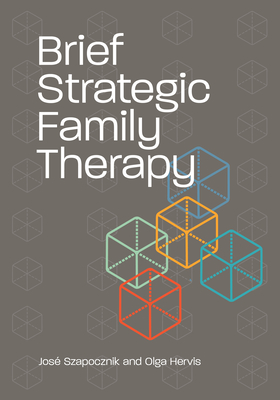
description
9Canadian Family Law, 8e provides expert insight into a wide variety of legal topics that confront families today, including: - the formation and annulment of marriage (ch 2);
- cohabitation (ch 3);
- domestic contracts (ch 4);
- family violence (ch 5);
- dispute resolution processes (ch 6);
- divorce (ch 7);
- spousal support (ch 8);
- child support (ch 9);
- parenting arrangements (ch 10);
- appeals (ch 11);
- provincial and territorial legislation (ch 12); and
- matrimonial property rights (ch 13). In each of these areas, the authors bring their readers up to date with notable trial and appellate decisions issued since the publication of the seventh edition of Canadian Family Law in 2017. The citation of relevant judicial decisions in the eighth edition of Canadian Family Law is current to 27 February 2020 but the text incorporates legislative changes to the Divorce Act, RSC 1985, c 3 (2nd Supp) that were enacted by SC 2019, c 16, which received Royal Assent on 21 June 2019. Many of the most important legislative changes were originally scheduled to come into force on 1 July 2020 but COVID-19 led to a Ministerial decision on 5 June 2020 to further defer their commencement date to 1 March 2021. The most fundamental legislative changes replace the loaded terminology of "custody" and "access" orders in favour of "parenting orders" that focus on parenting time and decision-making authority and "contact orders" with respect to third parties. They also establish a detailed non-exhaustive list of criteria to assist courts in determining the "best interests of the child"; call upon prospective litigants and their lawyers to address the feasibility of using out-of-court family dispute resolution services; introduce measures to effectively assist courts in addressing family violence; and create a framework for situations where one parent wishes to relocate a child of the marriage. Chapter 10 of the eighth edition of Canadian Family Law provides a detailed description of these legislative changes relating to parenting disputes and the authors venture their opinion concerning the ongoing impact of judicial rulings under the former statutory regime. Additional changes, primarily of a jurisdictional nature, are also included in the amending legislation. Those jurisdictional changes that are scheduled to come into force on 1 March 2021 are examined in Chapter 7 of the eighth edition of Canadian Family Law. Because Chapter 10 of the eighth edition of Canadian Family Law is confined to discussing legislative changes that will not come into force until 1 March 2021, Irwin Law will provide electronic access to Chapter 10 of the seventh edition of Canadian Family Law, which defines the governing legal criteria until 1 March 2021. Although courts cannot give effect to the aforementioned legislative changes with respect to parenting and contact orders before 1 March 2021, lawyers and mediators who are engaged in assisting divorcing or divorced parties to resolve parenting disputes are not subject to the same rigid constraint and they may look to the amending legislation for insights into the drafting of appropriate settlements. And because the jurisdictional analysis in Chapter 7 of the eighth edition of Canadian Family Law will also be inoperative before 1 March 2021, Irwin Law will provide electronic access to the relevant pages (179-191) in Chapter 7 of the seventh edition of Canadian Family Law, which define the governing jurisdictional criteria until 1 March 2021. Canadian Family Law will be of particular interest to judges, legal practitioners, mediators, arbitrators, and other professionals who require an understanding of the law relating to families. It also provides a unique source of information for law students and their professors as well as members of the public who face domestic crises and the threat of marriage breakdown. The eighth edition of Canadian Family Law is a companion volume to Payne and Payne, Child Support Guidelines in Canada, 2020. Previous editions of both of these texts have been cited in hundreds of judicial decisions across Canada, including the Supreme Court of Canada and appellate courts from coast to coast. Canadian Family Law has also been adopted as required reading in family law courses presented by several colleges and universities across Canada.
- cohabitation (ch 3);
- domestic contracts (ch 4);
- family violence (ch 5);
- dispute resolution processes (ch 6);
- divorce (ch 7);
- spousal support (ch 8);
- child support (ch 9);
- parenting arrangements (ch 10);
- appeals (ch 11);
- provincial and territorial legislation (ch 12); and
- matrimonial property rights (ch 13). In each of these areas, the authors bring their readers up to date with notable trial and appellate decisions issued since the publication of the seventh edition of Canadian Family Law in 2017. The citation of relevant judicial decisions in the eighth edition of Canadian Family Law is current to 27 February 2020 but the text incorporates legislative changes to the Divorce Act, RSC 1985, c 3 (2nd Supp) that were enacted by SC 2019, c 16, which received Royal Assent on 21 June 2019. Many of the most important legislative changes were originally scheduled to come into force on 1 July 2020 but COVID-19 led to a Ministerial decision on 5 June 2020 to further defer their commencement date to 1 March 2021. The most fundamental legislative changes replace the loaded terminology of "custody" and "access" orders in favour of "parenting orders" that focus on parenting time and decision-making authority and "contact orders" with respect to third parties. They also establish a detailed non-exhaustive list of criteria to assist courts in determining the "best interests of the child"; call upon prospective litigants and their lawyers to address the feasibility of using out-of-court family dispute resolution services; introduce measures to effectively assist courts in addressing family violence; and create a framework for situations where one parent wishes to relocate a child of the marriage. Chapter 10 of the eighth edition of Canadian Family Law provides a detailed description of these legislative changes relating to parenting disputes and the authors venture their opinion concerning the ongoing impact of judicial rulings under the former statutory regime. Additional changes, primarily of a jurisdictional nature, are also included in the amending legislation. Those jurisdictional changes that are scheduled to come into force on 1 March 2021 are examined in Chapter 7 of the eighth edition of Canadian Family Law. Because Chapter 10 of the eighth edition of Canadian Family Law is confined to discussing legislative changes that will not come into force until 1 March 2021, Irwin Law will provide electronic access to Chapter 10 of the seventh edition of Canadian Family Law, which defines the governing legal criteria until 1 March 2021. Although courts cannot give effect to the aforementioned legislative changes with respect to parenting and contact orders before 1 March 2021, lawyers and mediators who are engaged in assisting divorcing or divorced parties to resolve parenting disputes are not subject to the same rigid constraint and they may look to the amending legislation for insights into the drafting of appropriate settlements. And because the jurisdictional analysis in Chapter 7 of the eighth edition of Canadian Family Law will also be inoperative before 1 March 2021, Irwin Law will provide electronic access to the relevant pages (179-191) in Chapter 7 of the seventh edition of Canadian Family Law, which define the governing jurisdictional criteria until 1 March 2021. Canadian Family Law will be of particular interest to judges, legal practitioners, mediators, arbitrators, and other professionals who require an understanding of the law relating to families. It also provides a unique source of information for law students and their professors as well as members of the public who face domestic crises and the threat of marriage breakdown. The eighth edition of Canadian Family Law is a companion volume to Payne and Payne, Child Support Guidelines in Canada, 2020. Previous editions of both of these texts have been cited in hundreds of judicial decisions across Canada, including the Supreme Court of Canada and appellate courts from coast to coast. Canadian Family Law has also been adopted as required reading in family law courses presented by several colleges and universities across Canada.
member goods
No member items were found under this heading.
Return Policy
All sales are final
Shipping
No special shipping considerations available.
Shipping fees determined at checkout.







